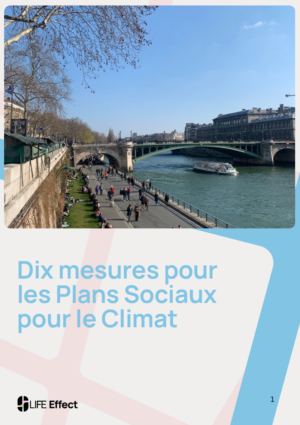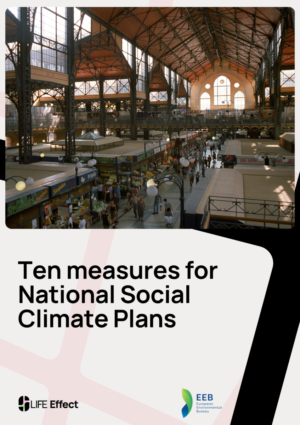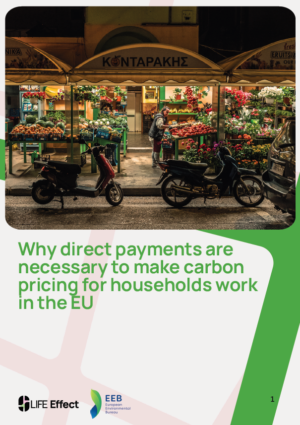Carbon pricing
Carbon pricing in transport and heating has an important role to play in making polluters pay and ensuring the EU meets its climate targets. Through our work with partners in the LIFE Effect project, we show that the new EU carbon pricing scheme (ETS2) will only be successful under certain conditions.
1. ETS2 must be complemented by additional national policies.
EU countries must adopt complementary measures to cut emissions and avoid high ETS2 prices. We are preparing a publication that would highlight promising policies that could pre-empt or complement ETS2 in reducing emissions. For example, national carbon floor (minimum) ETS2 prices make investments in decarbonisation less risky, help reduce emissions and thereby reduce prices in the future. Other measures could include lower motorway speed limits (as partially implemented in the Netherlands), restrictions on short-haul flights where high-speed trains exist (as imperfectly implemented in France) or restrictions on advertising high-emission products etc.
2. ETS2 revenues must be used fairly and transparently.
Revenues from the ETS2 must be distributed in a transparent way that benefits all citizens and enables investments in decarbonisation. While the Social Climate Fund remains insufficient in size, National Social Climate Plans which outline how countries will spend SCF resources can serve as models for the broader use of ETS2 revenues.
We have developed a toolkit to help evaluate different spending options based on multiple criteria. The English-language toolkit is complemented by national adaptations for France, Spain, the Netherlands, Poland, Greece, Germany. (Hungary and Sweden are in preparation).
3. National Social Climate Plans can promote social climate policies.
National Social Climate plans can and should go beyond options to spend SCF resources. Regulatory policy and rules for sharing ETS2 costs between property owners and renters should for example be included. We have highlighted ten measures in particular that appear promising to include in National Social Climate Plans – and not all of these measures require budget from the SCF (Document available in English, French, German, Greek, Italian, Portuguese, Polish, Spanish, Dutch and Czech).
One key measure we recommend – so far included in only few NSCPs – is direct payments to households. We have explained why this policy is both important and outlined the various legal bases for such payments here.
Finally, NSCPs are also the opportunity of promoting renewable energy for vulnerable households as we highlight here.




























